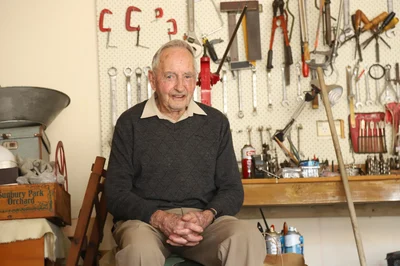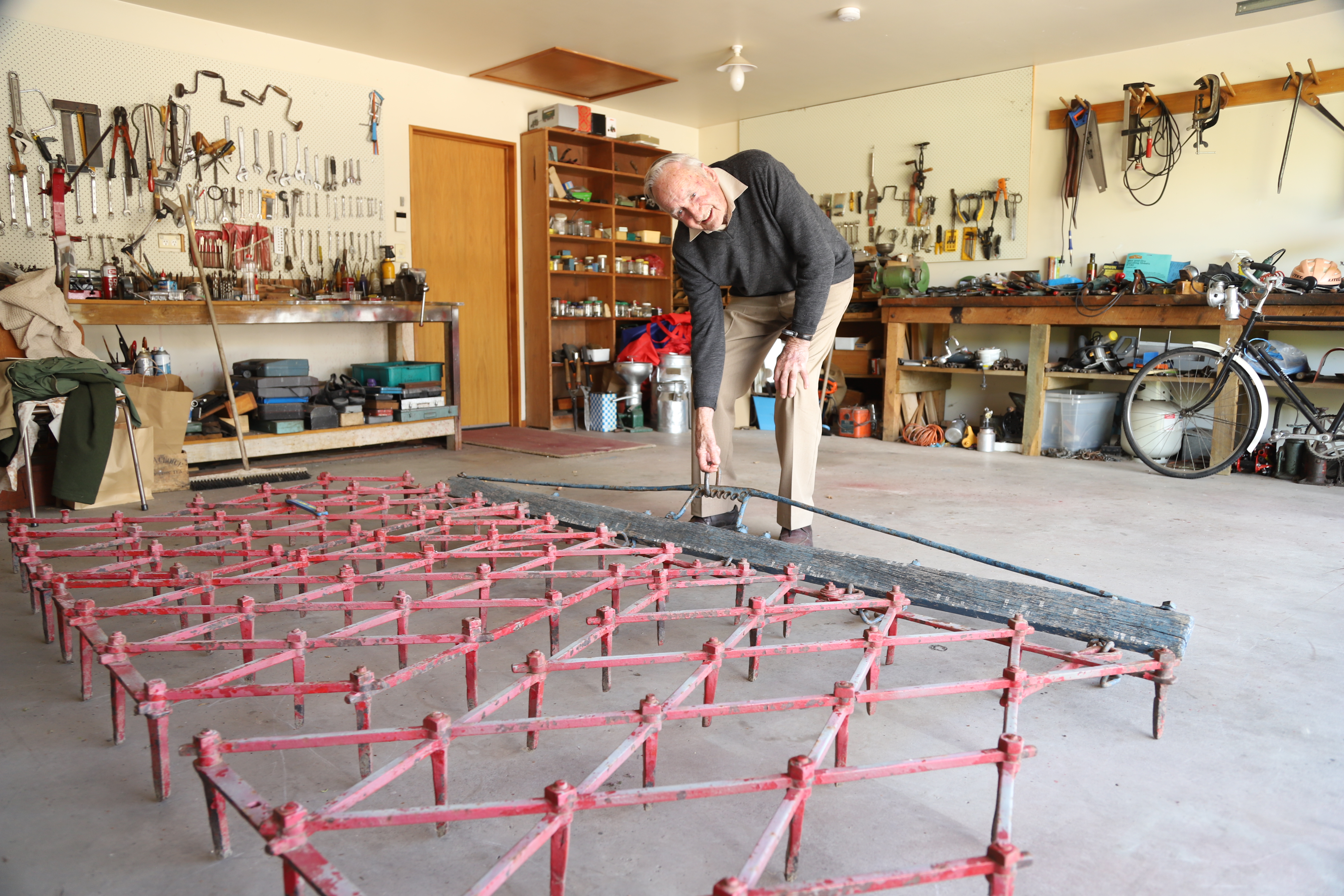A vintage family legacy

The oldest known farm implement in New Zealand and a vintage family legacy will be on display at the Wheat and Wheels Rally next month.
The 160-year-old iron harrow has removed weeds and prepared paddocks for planting in Canterbury since 1864 and has been the Donaldson family for five generations.
Back in 1998, the harrow was recognised as the oldest farm implement at the Silver Plough agricultural display.
Retired Hinds farmer, Gilbert Donaldson, the fourth-generation owner, is about to put a fresh coat of paint on the harrows in preparation for the rally on April 6 and 7.
Donaldson said the harrow was hand-forged in James Little's blacksmith shop in Woodend in Canterbury and purchased by his great-grandfather Hugh Donaldson in 1864 and used on a farm in Woodend.
The harrow made its way to Mid Canterbury when the Donaldsons bought land in Longbeach in 1876 and also worked to land near Lynnford when the family moved there.
"I'm the fourth generation to use them. They're good for harrowing wheat and have six rows of tines for weeds. But nowadays they spray all the crops," Donaldson said.
The harrow was used by Donaldson's grandfather John Donaldson, and his father, Reg Donaldson.
"I took over and used them from 1862. Now my daughter Helen and her husband at West Melton are the fifth generation to own them.
"This has six rows - most only had five - and no two tines followed each other. There wasn't a weed left in the paddock," the 88-year-old said.
Donaldson ran a 360-hectare sheep and cropping farm near Hinds where he had 100 acres under crops and ran 1000 ewes.
When the Lucerne factory started in Hinds, Donaldson moved to Lucerne.
"All I had to do was water it. The factory came to cut it."
The Lucerne was made into pellets to feed stock shipped overseas.
He said farming from the 1960s to 1990s was very stable and it was possible to earn a good income from farming, but the loss of farm subsidies had put many new generations off farming.
Donaldson was chairman of the Hinds Young Farmers Club at one stage and has written several local history books, including one about the club.
Other books include books to celebrate the 100th jubilee of the Lynnford School and District and two books for the Hinds School for its Centennial and 125th anniversary and 75th anniversary of the Hinds Presbyterian Church.
He's also written a book about the Hinds scouts and guides and the Staveley campsite. Donaldson has been on the campsite committee for 40 years and had three generations of his family involved there.

Donaldson reckons he has outlived many of his peers because he never smoked - except once as a 10-year-old school kid - and that put him off for life.
It was at the end of the war in 1945 when a soldier returned with sugar bags full of Camel cigarettes. Some of these were smuggled into Donaldson's school in a pillow case and a group of them went to a dugout to smoke.
"We were all so violently ill. There were 12 of us. Not one of us ever had another smoke."
Donaldson still has ration books from the war with coupons for sugar, butter, meat, flour and fuel.
"We had our own butter, meat, and milk and would trade coupons for extra sugar and fuel."
He remembers a saying from the time: "It's enough to make you rip your ration book" said when close to losing your cool.
- Sharon Davis

